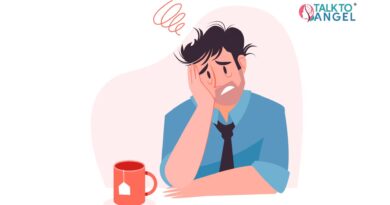The Benefits of Therapy for Anxiety and Mental Health
Anxiety is one of the most common mental health concerns affecting people across all age groups. From persistent worrying and stress to physical symptoms such as increased heart rate, anxiety can significantly interfere with daily life. Experiencing anxiety occasionally is normal, but when it becomes frequent, intense, or uncontrollable, it may indicate an anxiety disorder. Symptoms of anxiety disorders include restlessness, irritability, difficulty concentrating, sleep disturbances, and even physical symptoms such as muscle tension or digestive issues.
Fortunately, effective treatments are available, and therapy for anxiety has proven to be highly beneficial in managing both symptoms and underlying causes. Therapy for anxiety provides a structured, safe environment where individuals can explore their thoughts, emotions, and behaviors and develop strategies to cope with anxiety.
Understanding Anxiety Disorders
Anxiety disorders are more than just feeling stressed or worried. They are a collection of mental health conditions characterized by excessive fear, nervousness, or apprehension. Some common anxiety disorders include generalized anxiety disorder (GAD), social anxiety disorder, panic disorder, and phobias. Recognizing anxiety disorder symptoms is the first step toward seeking professional help. These symptoms may include:
- Persistent worry about everyday situations
- Feeling restless or on edge
- Difficulty concentrating or making decisions
- Irritability and mood swings
- Sleep issues, such as insomnia or disturbed sleep
- Physical symptoms like palpitations, headaches, or stomach issues
Left untreated, anxiety disorders can impact relationships, work, and overall quality of life. Individuals may also develop co-occurring conditions such as depression, anger, addiction, or trauma-related issues.
How Therapy for Anxiety Helps
Mental health counselling has been widely recognized as an effective approach for managing anxiety. There are multiple types of therapy, such as cognitive-behavioral therapy (CBT), psychodynamic therapy, and mindfulness-based therapies, each tailored to individual needs.
1. Reducing Anxiety Symptoms
Therapy for anxiety helps individuals identify triggers for their anxiety and learn practical coping strategies. Techniques such as deep breathing, progressive muscle relaxation, and guided visualization can reduce physical symptoms of anxiety. Over time, therapy empowers individuals to respond to stressful situations with more control and less fear.
2. Addressing Relationship and Couple Conflicts
Anxiety can strain personal relationships, leading to misunderstandings, arguments, or withdrawal from loved ones. Relationship issues and couple conflicts often arise because anxiety can make communication difficult. Through therapy, couples can improve communication, resolve conflicts, and rebuild trust. Therapists provide a neutral space for partners to express concerns and learn techniques to support each other effectively.
3. Managing Co-Occurring Mental Health Concerns
Individuals with anxiety often experience additional challenges such as depression, anger, loneliness, and addiction. Therapy for anxiety addresses these issues holistically, helping individuals manage emotional regulation, reduce negative thinking patterns, and foster healthier behaviors. By working on multiple areas simultaneously, therapy can enhance overall mental health and resilience.
4. Trauma Healing
Past traumatic experiences can contribute significantly to anxiety and related disorders. Therapeutic interventions, including trauma-focused therapies, provide tools to process and heal from trauma safely. This not only reduces anxiety but also helps individuals develop a stronger sense of self and emotional stability.
5. Improving Sleep and Daily Functioning
Sleep issues are a common consequence of anxiety. Therapy for anxiety can help individuals develop routines, relaxation strategies, and cognitive tools to improve sleep quality. Better sleep, in turn, enhances mood, concentration, and overall functioning, creating a positive cycle of mental health improvement.
6. Long-Term Coping Skills
One of the most significant benefits of therapy for anxiety is equipping individuals with long-term coping skills. Unlike medications, which primarily treat symptoms, therapy focuses on understanding and addressing the root causes of anxiety. Techniques learned in therapy—such as cognitive restructuring, mindfulness, and stress management—can be applied throughout life to manage stressors effectively.
Accessing Professional Support
Finding the best psychologist in Delhi or best psychologist in India is crucial for effective anxiety management. Qualified therapists assess individual needs and recommend evidence-based approaches tailored to specific situations.
For those who prefer flexibility and privacy, online counselling for mental health has become increasingly popular. Platforms like TalktoAngel, the best online counselling platform, connect individuals with certified therapists who provide sessions via video, audio, or chat. This option allows people to access mental health counselling conveniently from the comfort of their homes, overcoming barriers like distance, mobility issues, or social stigma.
TalktoAngel offers a wide range of services, including support for stress, anxiety, depression, anger, trauma, relationship conflicts, and addiction. The platform is designed to provide personalized guidance, helping individuals navigate challenges and build resilience.
Psychowellness Center – A Hub for Mental Health
For those who prefer in-person therapy, centers like Psychowellness Center – the best mental health wellness clinic in Delhi provide a comprehensive approach to mental health. These centers offer individual and group therapy sessions, workshops, and wellness programs tailored to diverse mental health needs. Access to such facilities ensures that individuals receive professional guidance, structured support, and a safe environment to discuss sensitive issues.
The Role of Therapy in Preventing Anxiety Relapse
Therapy for anxiety not only addresses current anxiety but also helps prevent future episodes. Through continuous support and skill development, individuals learn to recognize early warning signs, manage stress proactively, and maintain mental wellness. Regular therapy sessions, whether online via platforms like TalktoAngel or in person at specialized clinics like Psychowellness Center, can be a key component of long-term mental health care.
Conclusion
Anxiety can affect every aspect of life, from relationships to work and personal well-being. Seeking help through mental health counselling and professional therapy is essential for managing anxiety effectively. Therapy for anxiety provides tools to reduce symptoms, resolve relationship conflicts, heal trauma, improve sleep, and develop lifelong coping strategies.
Whether you choose the convenience of online counselling with TalktoAngel or personalized care at a clinic like Psychowellness Center, the benefits of therapy for anxiety are profound. With the guidance of the best psychologists in Delhi or India, individuals can regain control over their lives, enhance emotional well-being, and foster meaningful connections. Investing in mental health today is a step toward a healthier, more balanced, and fulfilling life.




